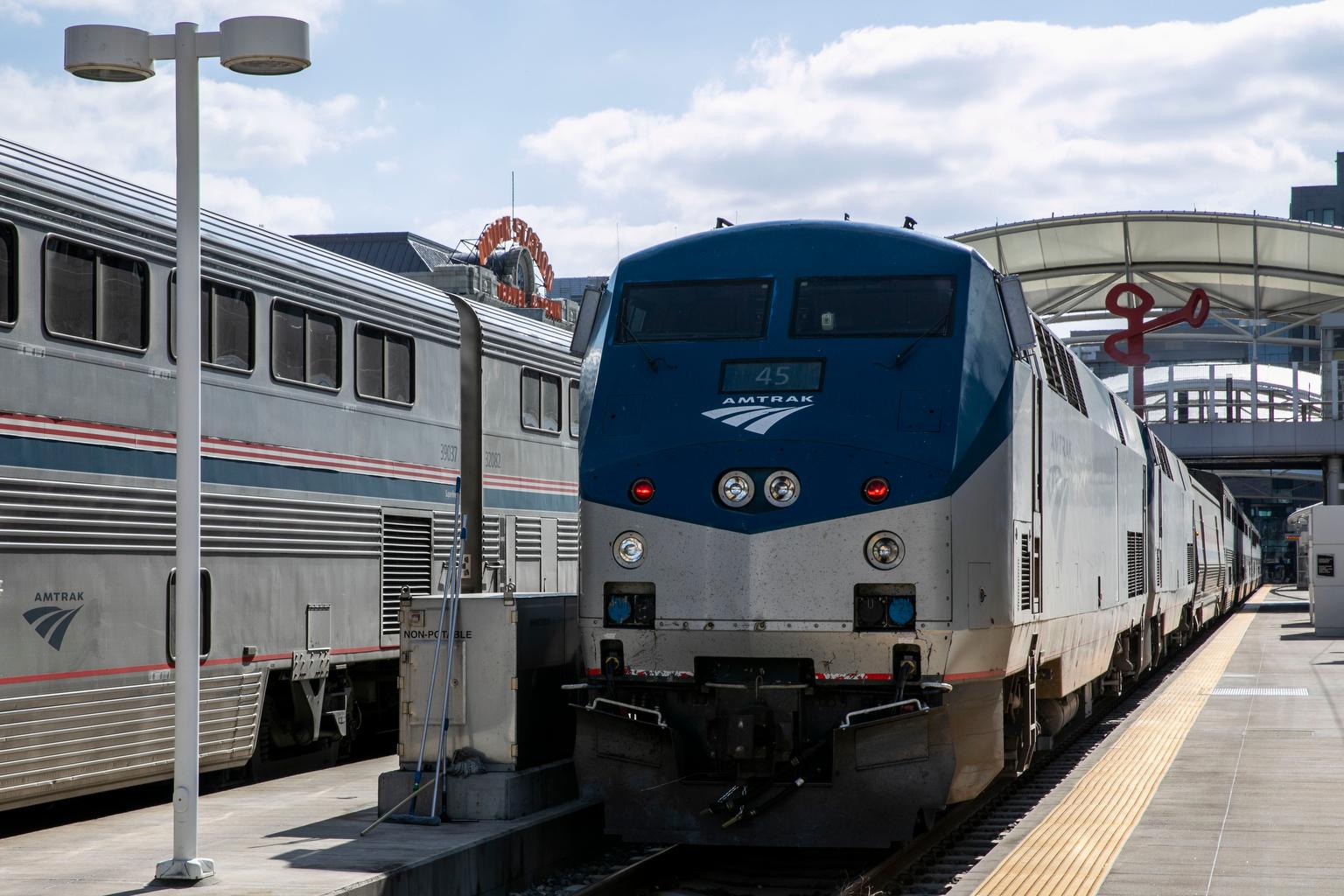
Colorado’s fledgling plans for passenger rail up and down the Front Range could get billions from the federal government under two separate proposals.
Sal Pace, a member of the state’s Southwest Chief And Front Range Passenger Rail Commission, said he’s been working with Amtrak and Republican Sen. Cory Gardner on bill language that would fund four new rail corridors across the country. He said it would mean more than $2 billion for Colorado.
“It would really play a huge difference in getting the Front Range passenger rail program built,” said the former Democratic state legislator and Pueblo County Commissioner in an interview.
Gardner confirmed that, saying he’s hopeful the language will be included in a future coronavirus stimulus bill.
“We’re going to keep pushing,” he said earlier in June.
It’s not yet clear which piece of legislation Gardner’s language would be attached to. The Democratic-controlled House of Representatives passed a coronavirus relief bill in May, but NPR reported it was “dead on arrival” in the Republican-held Senate.
Pace had hoped the commission could go to Colorado voters this fall with a funding request, but he said the coronavirus sidelined necessary work at the state legislature. So he’s glad Gardner has taken up the cause.
“The fact that it's Cory Gardner is really ideal as well because he is a moderate swing-state Republican up for re-election,” Pace said, who calls Gardner a friend. “He's well-liked in the caucus.”
Another funding possibility is the House Democrats’ Moving Forward Act, which would triple Amtrak’s funding to $29 billion. Some of that would go toward building and operating new intercity routes.
While neither the Moving Forward Act nor Gardner’s language, Pace said, specifically earmark money for Colorado, an Amtrak official said Friday the Front Range is important to the agency.
"We have some high-priority corridors which we think are ripe for development that we want to highlight, with the Front Range certainly being tops on that list,” Ray Lang, Amtrak’s senior director for national state relations told Colorado’s rail commission in a meeting Friday. “It’s a service we want to get up and running.”
The Moving Forward Act faces an uncertain future in the Republican Senate; the November election could change the political equation as well — depending on if Democrats seize control of the chamber or Gardner loses his race.
A Front Range rail line could also benefit the Regional Transportation District and its long-promised B Line extension to Boulder and Longmont. Pace said it’s possible that the two projects could jointly acquire the use of the existing freight line, which is currently owned by BNSF Railway.
“Getting the B Line done really serves a lot of purposes,” Pace said.
The unfinished line has become a weight around RTD’s neck since increasing costs and lower-than-expected revenues pushed out the timeline for its completion by decades. Boulder- and Longmont-area officials — and Gov. Jared Polis — say RTD needs to finish it, despite facing huge budget cuts and service reductions across its system.
“RTD has been very transparent about our need to secure additional funding to complete the remaining FasTracks projects,” RTD spokeswoman Pauletta Tonilas said in an email. “But if one of our partners succeeds in securing additional funds to deliver our transit projects to the public, we would, of course, welcome it with open arms.”
Some money could also go toward a planned change to the existing Southwest Chief, which runs through La Junta, Lamar and Trinidad in southeastern Colorado. Amtrak and the state rail commission are discussing sending a “thru car” to Colorado Springs and Pueblo.
While funding discussions continue, the actual plan for a new commuter rail system is in its early stages. Overall costs are still unknown, as are its specific route, stops and other important factors.
Amtrak itself recently said it would cut service on its two existing long-haul lines that run through Colorado because of the coronavirus, though Lang said Friday it would restore that as demand rises.
Editor's Note: An earlier version of this story said Amtrak would increase service on its existing rail lines as funding allows. Amtrak says such an increase is contingent on demand, not funding.
CPR’s Caitlyn Kim contributed to this report.









